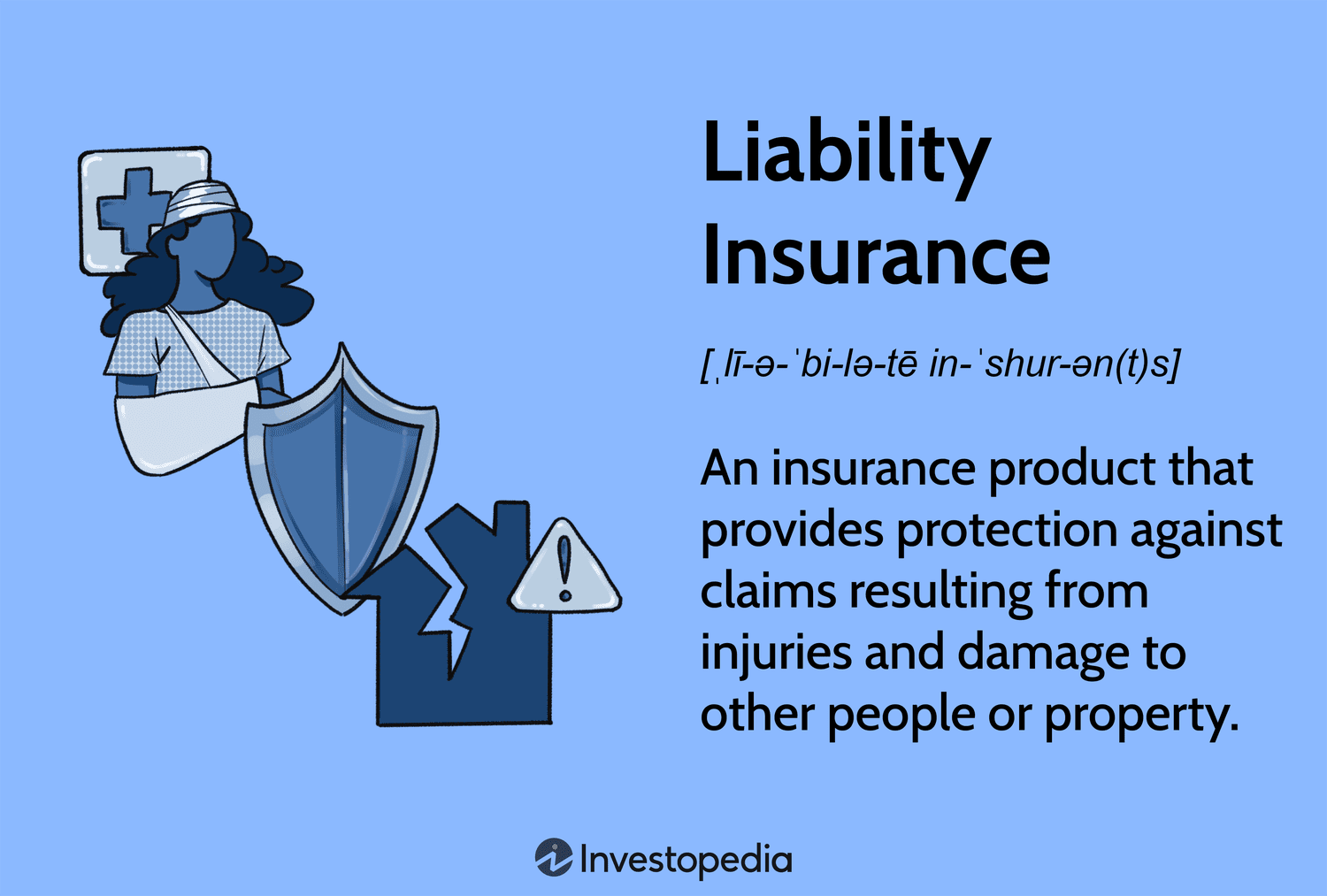Introduction
In the vast landscape of insurance providers in the United States, Auto And Home Insurance Companies in USA finding the right auto and home insurance company can be a daunting task. With countless options available, each offering its own set of policies and discounts, it’s essential to navigate this terrain wisely. This article will serve as your guide, Auto And Home Insurance Companies in USA shedding light on some of the leading insurance companies that can protect your most valuable assets: your car and your home.
Understanding Auto Insurance
What is Auto Insurance? Auto And Home Insurance Companies in USA
Auto insurance is a contract between you and an insurance company that provides financial coverage in case of accidents, theft, or other damage to your vehicle. It’s mandatory in most states, and driving without it can lead to serious consequences.
Types of Auto Insurance Coverage
Auto insurance typically includes several types of coverage, such as liability, Auto And Home Insurance Companies in USA collision, comprehensive, and uninsured/underinsured motorist coverage. Each serves a specific purpose in protecting you and your vehicle.
Top Auto Insurance Companies
When it comes to auto insurance, these companies stand out:
- State Farm
State Farm is known for its exceptional customer service and a vast network of agents. They offer various coverage options, making them a popular choice for drivers. - Geico
Geico is renowned for its catchy advertising and competitive rates. They specialize in providing affordable auto insurance without compromising on quality. - Progressive
Progressive is a pioneer in the insurance industry, offering innovative policies and features like Snapshot, which rewards safe driving habits. - Allstate
Allstate is synonymous with reliability. They have a strong presence nationwide and offer comprehensive auto insurance coverage.
Home Insurance: Protecting Your Haven
What is Home Insurance? Auto And Home Insurance Companies in USA
Home insurance, also known as homeowner’s insurance, protects your home and its contents from various risks, such as fire, theft, and natural disasters. It’s a crucial safeguard for homeowners.
Types of Home Insurance Coverage
Home insurance typically includes dwelling coverage, personal property coverage, liability coverage, and additional living expenses coverage.
Top Home Insurance Companies
When it comes to home insurance, these companies are top contenders:
- Allstate
Allstate isn’t just a leader in auto insurance; they also excel in home insurance. Their policies provide comprehensive protection for your home. - State Farm
State Farm extends its reputation for excellent customer service to home insurance as well. They offer flexible policies tailored to your needs. - Farmers Insurance
Farmers Insurance is known for its personalized service and options for additional coverage, ensuring your unique needs are met. - Liberty Mutual
Liberty Mutual is all about customization. They allow you to tailor your home insurance policy to fit your specific requirements.
Choosing the Right Insurance Company
Selecting the right insurance company involves careful consideration:
Consider Your Needs
Evaluate your insurance needs, whether it’s primarily auto or home coverage or a combination of both.
Compare Quotes
Obtain quotes from multiple insurers to find the most competitive rates.
Research the Company’s Reputation
Check customer reviews and ratings to gauge the company’s reliability.
Customer Service Matters
Excellent customer service can make a significant difference when dealing with claims and inquiries.
Bundling Auto and Home Insurance
Bundling your auto and home insurance policies with the same company often leads to substantial discounts. It’s a smart financial move that can save you money.
Saving Money on Insurance
Here are some tips to reduce your insurance costs:
Discounts
Take advantage of available discounts, such as safe driver discounts or home security discounts.
Raising Deductibles
Consider raising your deductibles to lower your premium, but be prepared to pay more out of pocket if you need to make a claim.
Improve Home Security
Enhancing your home’s security can lead to discounts on your homeowner’s insurance.
Exploring Policy Add-Ons
Beyond the standard coverage options, both auto and home insurance policies offer various add-ons to enhance your protection. Let’s delve into some of the most common ones:
Auto Insurance Add-Ons
Rental Car Reimbursement: This add-on covers the cost of renting a car if your vehicle is in the shop for repairs due to a covered accident.
Roadside Assistance: It provides help in common roadside emergencies like flat tires, dead batteries, or running out of fuel.
Gap Insurance: Particularly useful for new cars, gap insurance covers the difference between your car’s current value and the amount you owe on your auto loan in case of a total loss.
Home Insurance Add-Ons
Flood Insurance: Standard home insurance policies don’t typically cover flooding, so if you live in a flood-prone area, this add-on is crucial.
Earthquake Coverage: In regions susceptible to earthquakes, this coverage protects your home and belongings in the event of seismic activity.
Identity Theft Protection: This add-on helps you recover from identity theft-related expenses, such as legal fees and credit monitoring.
Scheduled Personal Property: For high-value items like jewelry or art, this add-on ensures that you receive the full value in case of loss.
The Importance of Reviewing Your Policies
As life changes, so do your insurance needs. Regularly reviewing your auto and home insurance policies is a prudent practice. Consider the following scenarios when it’s a good idea to revisit your coverage:
Life Milestones: Major life events like getting married, having children, or buying a new home can significantly impact your insurance requirements.
Upgrades and Renovations: If you make significant improvements to your home or add security features, it may qualify you for discounts on your home insurance.
Changing Commute: If your daily commute changes—for example, you start working from home—this can affect your auto insurance rates.

The Role of Insurance Agents
Insurance agents are valuable resources when navigating the insurance landscape. They can help you understand policy details, provide personalized recommendations, and assist with claims. When choosing an insurance company, consider their reputation for excellent customer service and accessibility of local agents.
Staying Informed and Protected
In a world filled with uncertainties, having the right auto and home insurance companies in the USA by your side is crucial. By understanding your coverage options, regularly reviewing your policies, and staying informed about industry trends, you can ensure that you and your assets remain protected.
Remember, insurance is not just a financial investment; it’s a shield that provides you with peace of mind, knowing that you are prepared for life’s unexpected twists and turns.
So, explore your options, consult with trusted agents, and make informed decisions to secure a safer, more certain future for yourself and your loved ones.
The Claims Process Demystified
Understanding the claims process is vital because, after all, insurance is about having a safety net when you need it most. Here’s a simplified overview of what to expect:
Auto Insurance Claims
Report the Incident: As soon as an accident occurs, contact your insurance company to report the incident. They will guide you on the next steps.
Claim Investigation: Your insurer will investigate the accident, including assessing damages and determining fault.
Estimate and Repairs: Once the investigation is complete, your insurer will provide an estimate for repairs or replacement.
Settlement: If the accident is covered, your insurer will settle the claim by paying for the damages or replacing your vehicle, minus any deductibles.
Home Insurance Claims
Notify Your Insurer: When your home experiences damage or loss due to a covered event, contact your insurer immediately to start the claims process.
Claim Assessment: An adjuster will visit your property to assess the damage and determine the coverage.
Estimate and Repairs: After the assessment, your insurer will provide an estimate for repairs or replacement.
Settlement: If the claim is approved, you’ll receive the necessary funds to repair or replace your property, minus your deductible.
Common Misconceptions About Insurance
There are several misconceptions about insurance that can lead to misunderstandings. Let’s debunk a few of them:
- Red Cars Cost More to Insure
The color of your car has no bearing on your insurance premium. Insurance rates are primarily based on factors like the make and model, your driving history, and your location. - Home Insurance Covers Everything
While home insurance is comprehensive, it doesn’t cover every possible event. Floods and earthquakes, for example, typically require separate policies. - Minimum Coverage is Sufficient
Meeting the minimum legal requirements for auto insurance may not adequately protect you in a serious accident. Consider higher coverage limits for greater protection. - Insurance Follows the Driver
In most cases, auto insurance follows the vehicle, not the driver. If someone borrows your car with permission and gets into an accident, your insurance typically covers it.
Safeguarding Your Future
As you explore the intricacies of auto and home insurance in the USA, remember that insurance is an essential component of financial planning. It’s not just about complying with legal requirements; it’s about safeguarding your future and that of your loved ones.
Maximizing Your Insurance Benefits
Insurance isn’t just about paying premiums and hoping for the best; it’s a dynamic process that you can actively manage to your advantage.
Auto Insurance
Safe Driving: Maintaining a clean driving record not only keeps you safe on the road but can also lead to lower insurance premiums over time. Many insurers offer safe driving discounts.
Usage-Based Insurance (UBI): Some companies offer UBI programs that track your driving habits. If you’re a safe driver, you could see significant savings.
Review Your Deductible: Adjusting your deductible can impact your premium. A higher deductible means lower premiums, but you’ll pay more out of pocket in case of a claim.
Home Insurance
Home Improvements: Regularly update your insurer about home improvements, renovations, or security enhancements. These can lead to discounts and better coverage.
Inventories and Documentation: Maintain an inventory of your home’s contents and important documents. In case of a claim, this makes the process smoother.
Discounts: Ask about discounts for bundling your home and auto insurance with the same company. Also, inquire about loyalty discounts for staying with the same insurer for an extended period.
Navigating Claims Successfully
When it comes to filing insurance claims, being prepared can make the process smoother:
Document Everything
Whether it’s a car accident or home damage, take photos and detailed notes about the incident. This documentation can be invaluable during the claims process.
Communicate Clearly
When speaking with insurance adjusters, provide accurate and concise information. Don’t embellish, but also don’t leave out important details.
Understand Your Policy
Familiarize yourself with the terms and conditions of your policy. Knowing what’s covered and what’s not can prevent misunderstandings.
Appeal If Necessary
If your claim is denied and you believe it’s valid, don’t hesitate to appeal. Sometimes, claims are initially denied due to minor issues that can be resolved.
The Future of Insurance
The insurance industry is evolving rapidly, thanks to technology. Here are some trends to watch out for:
Usage-Based Insurance (UBI)
UBI, powered by telematics and data analytics, will continue to grow. Insurers can tailor premiums based on individual driving behaviors, making insurance more personalized and fair.
Artificial Intelligence (AI)
AI will play a significant role in underwriting and claims processing. This can lead to quicker approvals and more accurate pricing.
Blockchain Technology
Blockchain can enhance the security and transparency of insurance transactions, reducing fraud and errors.
Protecting Your Valuables
When considering home insurance, it’s essential to safeguard your most valuable possessions, like jewelry, artwork, or collectibles. Most standard home insurance policies have limits on coverage for high-value items. To ensure these valuable assets are adequately protected:
Schedule an Appraisal: Have your high-value items appraised by a qualified professional to establish their worth accurately.
Purchase Scheduled Personal Property Coverage: This type of add-on allows you to specify and insure high-value items separately, ensuring they are fully protected.

Managing Premium Costs
Insurance premiums can be a significant part of your monthly expenses. To manage these costs effectively:
Bundle Policies: Consider bundling your auto and home insurance with the same company. This often leads to discounted rates.
Raise Deductibles: As mentioned earlier, increasing your deductible can lower your premium. Just be sure you have the means to cover the higher deductible in the event of a claim.
Discounts: Take advantage of available discounts. This can include safe driver discounts, home security discounts, and more.
Preparing for the Unforeseen
No one can predict when accidents or disasters will occur. However, you can be proactive in preparing for the unforeseen:
Emergency Fund: Create an emergency fund to cover unexpected expenses not covered by insurance, such as deductibles or temporary housing costs.
Regular Policy Reviews: Periodically review your policies to ensure they still meet your needs, especially after significant life events like marriage, a new home, or a new vehicle.
Regular Home Maintenance: Properly maintaining your home can reduce the risk of claims. Address issues like roof leaks, electrical problems, and plumbing repairs promptly.
The Future of Auto and Home Insurance
As technology continues to advance, the insurance industry will undergo further changes:
Smart Home Integration: Expect to see more insurance companies offering discounts for homes equipped with smart technology like security systems and leak detectors.
Usage-Based Insurance (UBI): UBI programs, which monitor driving habits and home security remotely, will become more prevalent.
Digital Claims Processing: The claims process will become more streamlined, thanks to digital technology. This means faster claims processing and quicker resolutions.
Legal and Ethical Considerations
Understanding the legal and ethical aspects of insurance is crucial to ensure you’re on the right side of the law and making ethical decisions:
Honesty Is Key: When applying for insurance or making a claim, always provide accurate information. Misrepresentation can lead to policy cancellation or denial of a claim.
Policy Review: Read your policy documents carefully. Understanding the terms and conditions is essential to ensure you’re getting the coverage you expect.
Responsibility in Claims: In the unfortunate event of a claim, be responsible in documenting the damages and cooperating with the insurance company’s requests.
Keeping Your Records Organized
Maintaining organized records related to your insurance can save you time, money, and frustration:
Digital Copies: Scan and store important documents, such as insurance policies, receipts for valuable items, and photographs of your assets in a secure digital format. This ensures you have easy access in case of loss or damage.
Regular Updates: As your circumstances change, like acquiring new assets or making significant renovations to your home, update your insurance records accordingly.
Disaster Preparedness
While insurance is essential for post-disaster recovery, preparedness can help minimize damage and disruption:
Home Safety: Invest in safety measures like smoke detectors, fire extinguishers, and security systems. These can not only save lives but also reduce the risk of costly claims.
Emergency Kit: Create an emergency kit with essential supplies and documents, including insurance policies and contact information for your agent.
Community Resources: Be aware of local disaster relief resources and programs that can provide support during recovery.
The Role of an Insurance Agent
Your insurance agent is a valuable resource. Don’t hesitate to leverage their expertise:
Annual Review: Schedule an annual review with your agent to ensure your coverage remains up-to-date and aligned with your needs.
Ask Questions: If you have doubts or concerns about your policy or coverage, ask your agent for clarification. They are there to help you understand your insurance fully.
Evaluating Risk Management
Insurance fundamentally involves managing risk. To make informed decisions, you need to understand the concept of risk management:
Risk Assessment: Continuously assess your personal risk factors. Are you living in an area prone to natural disasters? Do you drive long distances regularly? Understanding your risks allows you to tailor your coverage accordingly.
Risk Mitigation: Take steps to mitigate risks. For instance, if you live in a flood-prone area, consider elevating your home or installing flood barriers. Safe driving practices can reduce auto insurance risks.
Self-Insurance: For certain risks, you might choose to self-insure. This means setting aside funds to cover potential losses rather than paying insurance premiums. It can be a cost-effective strategy for managing lower-risk scenarios.
Utilizing Technology for Safety and Savings
Technology can be a powerful ally in insurance management:
Telematics Devices: Many auto insurance companies offer telematics devices that monitor your driving habits. Safer driving can lead to significant discounts.
Home Security Systems: Installing smart home security systems not only enhances your safety but can also lead to reduced home insurance premiums.
Digital Insurance Tools: Explore digital tools and apps provided by your insurance company. These can streamline policy management and claims processes.
Consider Umbrella Insurance
If you have substantial assets to protect, consider umbrella insurance. This additional coverage goes beyond your standard policies and provides extra liability protection. It can be a wise choice if you’re concerned about potential lawsuits that could exceed your existing coverage.
Be Prepared for Policy Renewals
When your policies come up for renewal, don’t simply accept the new rates. Take the opportunity to review your coverage and:
Comparison Shop: Compare rates and coverage options from different insurers to ensure you’re getting the best value.
Update Coverage: If your circumstances have changed (e.g., you’ve paid off your mortgage or added a new driver), adjust your coverage accordingly.
Ask About Discounts: Inquire about available discounts, especially if you’ve made safety improvements to your home or have maintained a clean driving record.
Continuing Education
The world of insurance is constantly evolving. Stay informed about industry changes and new insurance products:
Read Industry News: Regularly read news articles and reports related to the insurance industry to understand trends and emerging risks.
Attend Seminars or Workshops: Some insurance companies offer educational seminars or workshops. These can help you gain a deeper understanding of insurance concepts.
Consult a Financial Advisor: If your insurance needs are complex or you have significant assets to protect, consider consulting a financial advisor who specializes in insurance.
Evaluating Risk Management
Insurance fundamentally involves managing risk. To make informed decisions, you need to understand the concept of risk management:
Risk Assessment: Continuously assess your personal risk factors. Are you living in an area prone to natural disasters? Do you drive long distances regularly? Understanding your risks allows you to tailor your coverage accordingly.
Risk Mitigation: Take steps to mitigate risks. For instance, if you live in a flood-prone area, consider elevating your home or installing flood barriers. Safe driving practices can reduce auto insurance risks.
Self-Insurance: For certain risks, you might choose to self-insure. This means setting aside funds to cover potential losses rather than paying insurance premiums. It can be a cost-effective strategy for managing lower-risk scenarios.
Utilizing Technology for Safety and Savings
Technology can be a powerful ally in insurance management:
Telematics Devices: Many auto insurance companies offer telematics devices that monitor your driving habits. Safer driving can lead to significant discounts.
Home Security Systems: Installing smart home security systems not only enhances your safety but can also lead to reduced home insurance premiums.
Digital Insurance Tools: Explore digital tools and apps provided by your insurance company. These can streamline policy management and claims processes.
Consider Umbrella Insurance
If you have substantial assets to protect, consider umbrella insurance. This additional coverage goes beyond your standard policies and provides extra liability protection. It can be a wise choice if you’re concerned about potential lawsuits that could exceed your existing coverage.
Be Prepared for Policy Renewals
When your policies come up for renewal, don’t simply accept the new rates. Take the opportunity to review your coverage and:
Comparison Shop: Compare rates and coverage options from different insurers to ensure you’re getting the best value.
Update Coverage: If your circumstances have changed (e.g., you’ve paid off your mortgage or added a new driver), adjust your coverage accordingly.
Ask About Discounts: Inquire about available discounts, especially if you’ve made safety improvements to your home or have maintained a clean driving record.
Continuing Education
The world of insurance is constantly evolving. Stay informed about industry changes and new insurance products:
Read Industry News: Regularly read news articles and reports related to the insurance industry to understand trends and emerging risks.
Attend Seminars or Workshops: Some insurance companies offer educational seminars or workshops. These can help you gain a deeper understanding of insurance concepts.
Consult a Financial Advisor: If your insurance needs are complex or you have significant assets to protect, consider consulting a financial advisor who specializes in insurance.
Sustainable Insurance Practices
In an era of increasing environmental consciousness, consider insurance practices that align with sustainability:
Eco-friendly Home Modifications: Implement green home improvements like solar panels, energy-efficient appliances, and sustainable building materials. Many insurance providers offer discounts for eco-friendly homes.
Usage-Based Auto Insurance: Embrace usage-based auto insurance programs that monitor your driving habits. Safe and fuel-efficient driving not only reduces your carbon footprint but can also lead to insurance discounts.
Carbon Offset Programs: Some insurance companies are introducing carbon offset programs, where they invest in environmental initiatives to offset the carbon emissions of policyholders. Explore insurers that offer such programs to contribute positively to the environment.
Cybersecurity Coverage
With the increasing frequency of cyberattacks, consider cybersecurity coverage to protect yourself from the financial fallout of cybercrimes:
Identity Theft Protection: Cybersecurity policies often include identity theft protection, which can be crucial in today’s digital age.
Data Breach Coverage: If you run a home-based business or handle sensitive information, inquire about data breach coverage to safeguard against the financial implications of a cyberattack.
The Importance of Comprehensive Home Inventories
Creating and maintaining a comprehensive home inventory can be a game-changer in the event of a loss:
Digital Records: Utilize digital tools or apps to document your belongings systematically. Include photographs, purchase receipts, and detailed descriptions.
Cloud Storage: Store your inventory records in secure cloud storage or share them with a trusted friend or family member. This ensures access in case of a disaster.
Regular Updates: Continuously update your home inventory as you acquire new items or make significant changes to your possessions.
Exploring Niche Insurance Options
Depending on your unique circumstances and interests, explore niche insurance options:
Collector’s Insurance: If you have a valuable collection of art, antiques, or collectibles, consider specialized collector’s insurance to protect your investments.
Pet Insurance: For pet owners, pet insurance can alleviate the financial burden of unexpected veterinary expenses.
Travel Insurance: Frequent travelers might benefit from annual travel insurance policies that provide coverage for multiple trips throughout the year.
The Role of Professional Advice
For complex insurance needs or significant financial assets, consider consulting with a professional:
Insurance Broker: An insurance broker can help you navigate the intricacies of insurance policies, providing tailored recommendations based on your unique situation.
Financial Advisor: A financial advisor can assist in integrating insurance into your broader financial plan, ensuring it complements your investment and retirement strategies.
Conclusion
In the complex world of insurance, finding the right auto and home insurance companies in the USA is essential for protecting your assets. By understanding your needs, comparing quotes, and researching companies, you can make an informed choice that provides peace of mind.
FAQ
- Is auto insurance mandatory in all states?
Auto insurance is mandatory in most states, but the requirements vary. Always check your state’s specific regulations. - Can I customize my home insurance policy?
Yes, many insurance companies offer customizable home insurance policies to meet your specific needs. - How can I save on insurance premiums?
You can save on insurance premiums by bundling policies, taking advantage of discounts, and improving your home’s security. - What factors affect my auto insurance rates?
Auto insurance rates are influenced by factors such as your driving history, the type of vehicle you drive, and your location. - Are online insurance quotes accurate?
Online insurance quotes provide a good estimate, but the final rate may vary based on underwriting and other factors.
 Insu Edu Tech Insurance, Education & Technology
Insu Edu Tech Insurance, Education & Technology




